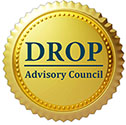Be alert to fraudulent emails, text messages, and phone calls
Fraudsters are on the attack, using malicious email, text messages, and telephone scams designed to steal tax refunds and government stimulus checks being distributed to eligible individuals. Don’t fall for common scams:
Internal Revenue Service (IRS) Checks
No business/service can get you a check faster.
No third party is being used by the IRS to “hold” or sort checks.
Funds are issued directly from the IRS to you via direct deposit or U.S. Postal Service mail. Stimulus checks are issued based on how you filed your 2018 or 2019 taxes.
The IRS will not ask for PINs, passwords, or confidential access information for credit cards or bank accounts over the phone or email.
Phone Scams
Scammers may pose as IRS agents or bank employees to request sensitive information or to ask you to verify sensitive information, such as bank account credentials and Social Security Numbers.
Let all incoming calls from unknown numbers/callers go directly to voice mail. Confirm any request with the alleged organization/business. Use a known phone number or one published on the organization’s official website.
Email and Text Message Scams
Email or text messages may tempt you to click on a link to infect your device with malware or call a fake number promising urgent news about your stimulus check or asking you to share personal or banking information. These cyber-attacks, known as phishing, are sometimes created to look like official bank correspondence.
Do not click on links or open attachments.
Confirm the message is from a trusted source using a known phone number.
Report Scams to Your Local Government
Start by reporting the scam to your state consumer protection office. If you lost money or other possessions in a scam, report it to your local police too.
Report Scams to the Federal Government
You can report scams to the federal government. Your report may keep others from being a victim of a scam. Government agencies use reports of scams to track scam patterns. They may even take legal action against a company or industry based on the reports. However, agencies usually don’t follow up after you report, and can’t recover lost money.
Do not use the agency contact information included in scam messages. Use the contact information in the federal agency directory to report other government imposters.
